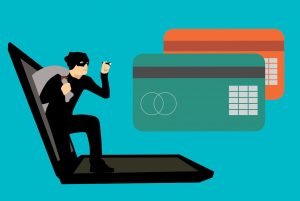With the growing use of the internet, most businesses and organizations have positively transformed themselves. However, they are now even more exposed to cyber threats than ever with growing cyber attacks by cybercriminals or hackers.
Being highly knowledgeable about cybersecurity in this whole new world of security threats will protect you and your business from cyber-attacks.

The terms “Computer security” and “Cybersecurity” are popular topics and seem to be similar.
Most people use them interchangeably, but there is a difference between them.
Computer security is a narrow term when compared to cybersecurity. Here is the main difference between both:
Computer Security
When the term computer security is being used, it means only the security of a standalone computer with its software and hardware.
Cybersecurity
The word cyber means a “culture of computers”.
Therefore, cybersecurity is the securing of a network of computer systems involving the security of individual systems.
It involves securing all the intercommunication in the network, all the hardware, and software, mobile devices, scanners, and printers.
It indicates the security of everything that is connected.
Most common forms of Cyberattacks
The computer systems or their network is at the risk of being attacked by cyber threats and attackers if you do not have computer security or cybersecurity in your organization.
It is crucial for you to know these cyber attacks. Following are some of the most common forms of cyberattacks:
Worms
Worms are a form of software programs that replicate themselves as soon as opened in an email or something similar. They copy themselves automatically from one computer to another computer and use up all the space of the disk.
Virus
Viruses are those malicious software programs that can fully disable the functionality of a computer. When loaded into someone’s computer via infected files or storage drives, they will replicate themselves, just like worms, and infect all the other files and software present on the computer.
Keylogger
A keylogger is a software that tracks all the real-time keystrokes of the computer user. By recording every keystroke on the keyboard made by the user, without their knowledge, this can be used to steal passwords and login credentials.
Rootkit
A rootkit is a program that provides privileged access to a computer to the hacker. Once installed in the computer system, it can remotely execute files and entirely change the settings of the system
Phishing
Phishing is a fraudulent activity of stealing sensitive data and private information of businesses through emails by cyberattackers impersonating themselves as trustworthy individuals. An attacker acting as a trustworthy entity steals the user data by duping a victim through emails, calls or messages.

Practices to maintain Cybersecurity and Computer security
With increasing cyber threats to businesses and organizations, there is a huge need for measures to prevent them.
Some measures to stay protected by cybersecurity and computer security are:
- Having backups of important files and data frequently to prevent losses.
- Always using the best antivirus on the computer systems.
- Providing cybersecurity and awareness training to the employees.
- Adding an extra layer of security with the use of secure firewalls.
- Having the latest cybersecurity technology available.
Even with the most updated cyber security and computer security protocls, data leakages and data thefts can be avoided by updating your working practices with these measures.
